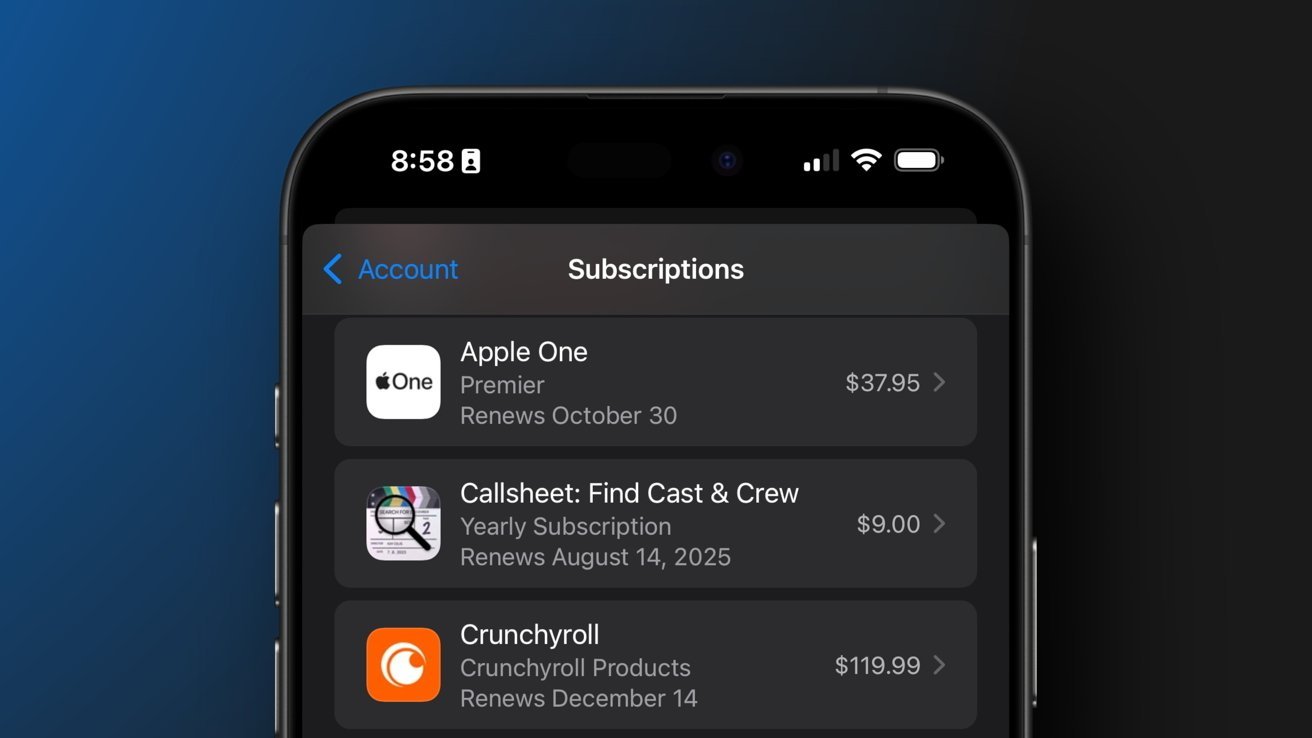FTC 'Click to Cancel' rule that was annoying some services cancelled by the courts
The Federal Trade Commission's so-called "Click to Cancel" rule that would have required single-click subscription cancellation everywhere like it is on the App Store now has been killed off, after a U.S. Eighth Circuit Court of Appeals ruling.

App subscriptions in the App Store are reasonably simple to cancel
The rule, which would force companies to make it clear and simple for users to cancel subscriptions and services, would've made lives easier for consumers across the United States. However, the ruling by the Eighth Circuit Court of Appeals effectively leaves the rule ineffectual.
While the rule was finalized in October 2024, the implementation of the rule was delayed until July 14. However, that is no longer a possibility following the ruling.
The court was petitioned by companies and industry associations, insisting that the FTC had not followed the correct procedures to introduce the rule. This includes conducting analysis on the issue before actually ratifying the rule.
The ruling squarely sides with the companies. Though the court states it does not endorse unfair and deceptive practices in "negative option marketing," it describes the procedural deficiencies of the rule-making process as "fatal."
Vacation of the entire rule is the correct move, the court says, because of the prejudice suffered by Petitioners as a result of the Commission's procedural error. It's not clear in the ruling what that "prejudice" is, though.
The decision means that the rule will not be applicable in its current state, and companies can continue to handle cancellation attempts as well or as difficult for the consumer as they do now. However, it doesn't stop the FTC from going through the correct motions to bring it back again in the future.
That may take a while to occur, as the current political leaning of the FTC and the U.S. government in general won't make it a priority.
A big pro-consumer chance, missed
The rule change would've made a big impact for consumers frustrated by the cancellation policies of subscriptions and services. The rule was made in response to businesses making it very hard for consumers to actually perform a cancellation, often by introducing multiple barriers and extensive cancellation fees to impede progress.
As of the October implementation, the rules would have prevented sellers from misrepresenting material facts while marketing goods or services with a "negative option feature," meaning tougher cancellation procedures.
It would have also punished firms failing to disclose terms about cancellations, and failing to get a consumer's express consent over the procedures. Companies would also have had to provide a simple mechanism for cancellations, and to immediately halt charges.
The full ruling follows:
FTC 'Click to Cancel' ruling by courts by Malcolm Owen on Scribd
Read on AppleInsider

Comments
Just got a used 2023 Chevy Bolt. The myChevrolet app is useless with a minimum $15/mo OnStar monthly subscription. The app tells me nothing about the state of the vehicle without the subscription. No state-of-charge, no charging station maps, no charging state, no vehicle data, no phone key. It's just has a mostly useless owner's manual, not properly formatted for iPhones. With the OnStar subscription, you get a lot of niceties. However, you also will get OnStar selling your driving data to insurance companies and advertisers. They may say they don't do that, but like a judge, they can change their mind at any time. All it takes is a quarter with bad revenue. And cancelling means having to call them and dealing with the automated call system, soon to be impossible to find an actual human to talk to.
Everyone already knows cancelling subscriptions can be a Sisyphean task, including these judges. And these judges know that just made an anti-consumer decision.